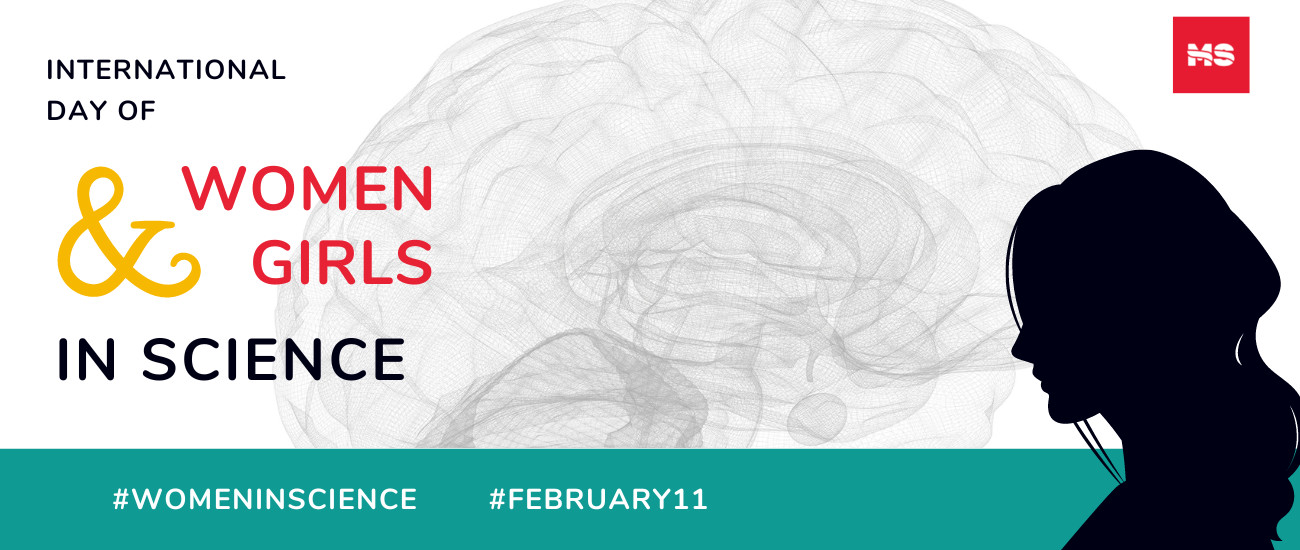
February 11 is a special day for the global science community. Worldwide, people come together to mark the United Nation’s International Day of Women and Girls in Science. The day is an empowering reminder that women in science remain underrepresented in many fields and deserve equal participation and recognition for their work.
In honour of the day, ECTRIMS would like to highlight and congratulate a new international endeavour launched last October at ECTRIMS 2022 that aims to empower women within our MS research community.
The Rachel Horne Prize for Women’s Research in MS
Supported by ECTRIMS, ACTRIMS and the International Women in MS (iWiMS), this initiative aims to recognise the essential role of women in the field of MS research, with an annual prize of US$40,000 given to a selected woman scientist for her work in furthering the understanding of women’s health issues and treatment strategies in MS.
ACTRIMS President Mark Freeman will announce the date of the opening of the nomination and application process on 25 February at the ACTRIMS conference. Nominations may be submitted through June, with ECTRIMS President Mar Tintoré announcing the winner this October at MSMilan2023. Please refer to the Rachel Horne prize criteria page for more information.
“We are thrilled to support the Rachel Horne Prize for Women’s Research in MS and very much look forward to announcing the inaugural winner at the 9th Joint ECTRIMS-ACTRIMS meeting next year in Milan, Italy.”
ECTRIMS President Professor Mar Tintore
The prize, to be used at the discretion of the recipient, has been endorsed by the National MS Society, the MS Society UK and the Latin American Committee for Research and Treatment in MS, and is made possible by the generosity of the Horne Family Charitable Foundation.
“By creating this award, I want to say to all the women scientists researching this complex, challenging disease: you matter, you make a difference, so thank you,”
Rachel Horne, Founder of the Rachel Horne Prize
ECTRIMS stands by the scientific community as it continues to strive for gender equality in all areas of STEM disciplines. Please visit the UN’s International Day of Women & Girls webpage to learn more about ways to support the narrowing of the gender gap in the scientific community.
More About International Day of Women and Girls in Science*
A significant gender gap has persisted throughout the years at all levels of science, technology, engineering and mathematics (STEM) disciplines all over the world. Even though women have made tremendous progress towards increasing their participation in higher education, they are still under-represented in these fields.
Gender equality has always been a core issue for the United Nations. Gender equality and the empowerment of women and girls will make a crucial contribution not only to economic development of the world, but to progress across all the goals and targets of the 2030 Agenda for Sustainable Development, as well.
On 14 March 2011, the Commission on the Status of Women adopted a report at its fifty-fifth session, with agreed conclusions on access and participation of women and girls in education, training and science and technology, and for the promotion of women’s equal access to full employment and decent work. On 20 December 2013, the General Assembly adopted a resolution on science, technology and innovation for development, in which it recognised that full and equal access to and participation in science, technology and innovation for women and girls of all ages is imperative for achieving gender equality and the empowerment of women and girls.
*This except was taken from the United Nation’s International Day of Women and Girls in Science webpage
About ECTRIMS
For nearly 3 decades, ECTRIMS has been committed to its mission of facilitating communication, creating synergies and promoting and enhancing research and learning among professionals for the ultimate benefit of people affected by multiple sclerosis. ECTRIMS works with researchers and clinicians of its member countries and with other organisations that share similar missions and objectives on a worldwide scale, creating networking and collaboration opportunities. The ultimate goal of ECTRIMS is to improve basic and clinical research and clinical outcomes in MS.